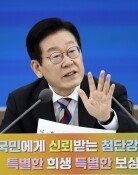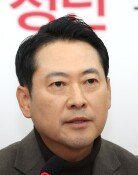Waning IT Competitiveness
National Assembly Speaker Kim Hyong-o has suggested setting up a comprehensive government department in charge of information, communications and contents technology, a sector expected to grow into a major growth engine. iPhone has given us a mobile shock. We need to reflect on ourselves while considering whether we have been engrossed in complacency that Korea is the worlds IT powerhouse, he said. He said he made the suggestion because he believes the conditions are worse than thought.
In February 2008, the Lee Myung-bak administration divided the Information and Communications Ministry into the Korea Communications Commission, the Knowledge Economy Ministry, the Culture, Sports and Tourism Ministry, and the Public Administration and Security Ministry. Certain functions of the information ministry were taken over by the Education, Science and Technology Ministry under the banner that IT convergence be achieved by encouraging the field to enter other industries including manufacturing and the service sector. The intended effect of IT convergence has been insignificant, however, and instead, side effects resulting from the information ministrys dissolution have emerged.
The presidential official proposed an overall direction, saying, Confusion among relevant organizations will be resolved by precisely dividing work. We will also participate in the adjustment process. This prediction has not come true, however. Each organization has been competitive in securing more financial resources and regulatory authorities. Yet they have barely sought to promote information, communications and contents technology, even trying to evade responsibility. When a dispute over overlapping budget execution emerged, they even fought over funding and financial resources. Certain operations including broadcasting promotion were even competitively shared by several organizations. With smartphones soaring in popularity, the five government ministries have each released their own measures to promote mobile technologies, begetting confusion.
Korea took the initiative in establishing a high-speed Internet network. Recently, however, the country has lagged behind other nations in mobile service, which has resulted in weakening competitiveness of Koreas IT ecosystem ranging from IT infrastructure to hardware, software and content. Monopolistic communication service providers are busy securing a large share of the domestic market and have declined to introduce innovative mobile services developed by foreign service providers. The government has also failed to set a concrete agenda.
The argument that Korea has lost its competitiveness in information, communications and contents technology due to lack of an integrated ministry can be considered an attempt by the government and industry to evade responsibility. Still, the possibility exists that the absence of an integrated ministry might have further contributed to the weakening of Koreas IT industry. In the IT Competitiveness Index, Korea ranked third among 30 nations in 2007 but fell to 16th last year. Moreover, the countrys ranking has dropped in a variety of IT indices. If this gloomy reality is closely examined, structural problems will emerge. For its part, the government should discuss with the industry setting up a centralized control tower for policies. Resistance from related government agencies and the June 2 local elections will pose an obstacle to discussing solutions. Yet Koreas competitiveness will further weaken unless it swiftly deals with the problem.







